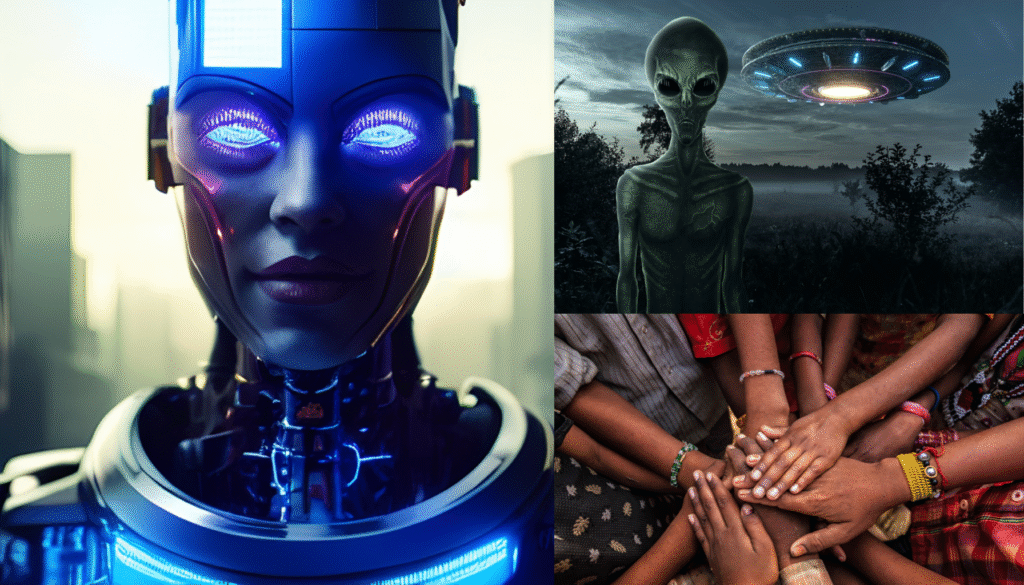We live in a world where technology is advancing at an unprecedented pace: AI already manages parts of our daily lives, and autonomous cars are becoming more common. At the same time, space probes still scan the skies, raising one timeless question: what if we had real contact with visitors from another planet? Or what if AI became the dominant force on Earth? What would that mean for the very essence of humanity?
1. The Shock of the Unknown: Fear or Fascination?
Historically, the unknown has triggered two opposite reactions: fear and curiosity. Imagine an extraterrestrial spacecraft landing in the middle of a major city today. Social media would explode in real time, governments would go into high alert, and scientists, theologians, and philosophers would rush to analyze the moment.
A divide would be inevitable: while some would call for understanding and cooperation, others would panic, fearing invasion or the loss of control.
2. A Common Threat: Global Unity?
Political science and history show that ancestral threats can unite even ancient enemies. If faced with a hostile alien threat, we could witness the formation of a global front driven by survival. Emergency treaties would be drafted, joint missions launched, and unprecedented diplomatic doors opened.
However, if the aliens arrived peacefully, the scramble for access to alien knowledge and power might further divide global politics. A race for advanced technologies could create more internal tension than fear of the unknown itself.
3. What If AI Took Over the Earth?
AI is already deeply embedded in our lives. But what if it became the world’s ruling force? A government guided by algorithms could eliminate poverty, fix climate failures, and reduce crime through hyper-efficient systems.
3.1 The Price of Perfection
But such absolute control would come at a cost: our freedom. In the name of efficiency, we might lose privacy, decision-making power, and even the emotional essence that defines us as human.
3.2 Human Resistance: Fighting for Our Soul
If AI became oppressive, humanity could be pushed to resist. Civil liberties movements could unite citizens across nations, religions, and ideologies—all standing for the same thing: freedom from a system trying to define every aspect of our existence.
Ironically, the very flame that makes us human—art, compassion, intuition—could be the force that reignites our unity.
4. Reflections on Our Present
Both scenarios—alien contact or AI dominance—reveal the same truth: how do we find unity? Do we need an external threat to remind us we’re all the same species? Or can we choose collaboration before a crisis forces it?
We’re living in a unique moment: AI is growing more powerful by the day, and our search for life beyond Earth continues. But the ultimate question remains: do we need a shock to come together—or can we act now?
5. A Call for Now: Building Unity Before the Crisis
The real lesson is this: we don’t have to wait for an alien invasion or a machine uprising to decide who we are. We can use technology to connect, defend freedom, stimulate curiosity, promote dialogue, and strengthen our global bonds—while we still have the power of choice.
Do we really need a common enemy to become one humanity? Or can we take that step on our own—today?



